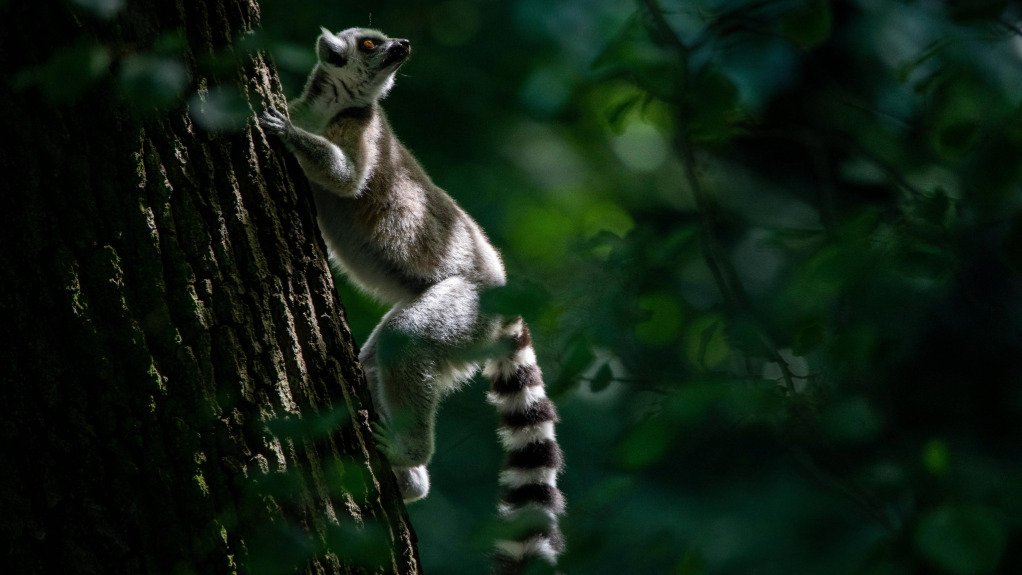Diversified miner Rio Tinto has committed $16-million to the Makira Natural Park’s Reducing Emissions From Deforestation and Forest Degradation in Developing Countries (REDD+) project, in northern Madagascar, through a new partnership with nonprofit organisation the Wildlife Conservation Society (WCS) and conservation marketing organisation Everland.
The REDD+ project also tackles forest-related activities that protect the climate, namely sustainable management of forests and the conservation and enhancement of forest carbon stocks.
This investment is in addition to Rio Tinto’s investment in nature-based solutions in the south-east of the country.
The Makira Natural Park REDD+ project encompasses 372 000 ha of dense primary forest. As one of the largest remaining rainforests in the country, Makira is home to 17 species of lemur and more than 50% of Madagascar’s botanical diversity. It is critical to the protection of species found nowhere else in the world.
The project area is also home to 120 villages comprising about 90 000 people. The project works to build the capacity of these communities to practice more sustainable agriculture and avoid deforesting new areas.
Rio Tinto’s commitment will help enable the REDD+ project to scale up and improve protected area management with funds that will directly benefit the rural communities living in and around the park.
These funds will help the project to reassess the deforestation baseline according to the latest Verified Carbon Standard (VCS) and Climate, Community and Biodiversity (CCB) Standards before credit issuance.
The funding will also support monitoring and reporting on the impact of ongoing interventions to reduce deforestation, protect threatened biodiversity and bring durable improvements to local communities, including increasing their involvement and agency in forest and wildlife protection activities.
Rio Tinto’s investment also includes a committed offtake of carbon credits from the project.
“This commitment by Rio Tinto to the Makira Natural Park REDD+ project underlines the critical importance of project-level REDD+ efforts within our national programme as an effective tool to halt deforestation, protect critical ecosystems and biodiversity, and fund urgently needed development priorities for local communities.
“This commitment by Rio Tinto, in partnership with WCS, is an important milestone in achieving Madagascar’s national and international goals on climate change and sustainable development,” Madagascar Environment and Sustainable Development Minister Max Andonirina Fontaine said on November 15.
While Rio Tinto has been working to reduce its operational emissions, this commitment is part of the company’s work to invest in and develop high-integrity nature-based solutions.
The company assured that this kind of investment did not compete for capital with, or replace, decarbonisation projects. Rather, they were standalone carbon and nature investments aimed at encouraging positive outcomes in the regions where Rio Tinto operates.
“Supporting the development of REDD+, restoration and sustainable landscape management programmes in the regions where we work is a critical component of our Nature Solutions programme. The Makira Natural Park project has played a key role in demonstrating the success of REDD+ in conserving high biodiversity landscapes whilst bringing positive outcomes for people.
“We believe these programmes are much-needed tools to urgently finance large-scale, long-term activities and therefore to secure sustained protection, while improving climate resilience and restoring the ecosystem services on which we all rely,” Rio Tinto nature solutions chief adviser Theresia Ott said.
WCS executive director Todd Stevens said Rio Tinto’s contribution would provide a critical surge in support of recharging forest and biodiversity conservation, as well as community livelihoods and economic development activities in Makira.
“We need more public-private partnerships like this to help countries like Madagascar continue to access carbon finance to meet their climate and sustainable development goals, while safeguarding forests and wildlife for generations,” he said.
Everland CEO Joshua Tosteson believes the risks of inaction have become untenable and that the reputational risks of voluntary corporate action have made it untenable for many companies to act.
“[This is a time] when action is most needed to turn the tide on forest loss. We applaud Rio Tinto, the Madagascar Ministry of Environment and Sustainable Development and the WCS for their bold commitment to protecting and enhancing some of the most important and endangered ecosystems in the world, while directly empowering the local communities whose fate is intertwined with that of the forest,” he said.
Edited by: Chanel de Bruyn
Creamer Media Senior Deputy Editor Online
EMAIL THIS ARTICLE SAVE THIS ARTICLE
ARTICLE ENQUIRY
To subscribe email subscriptions@creamermedia.co.za or click here
To advertise email advertising@creamermedia.co.za or click here













